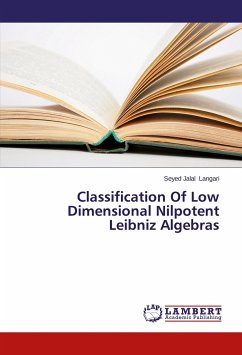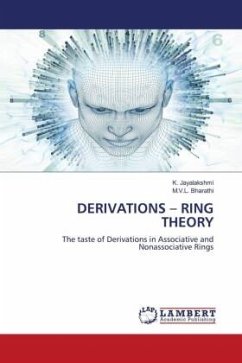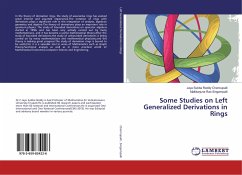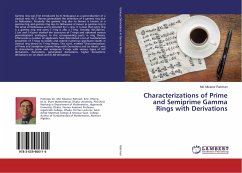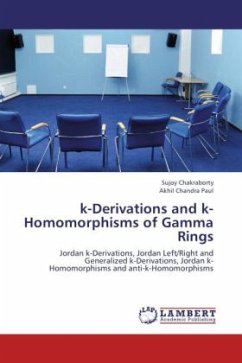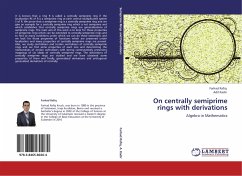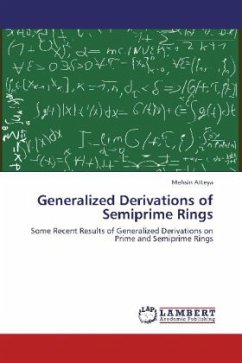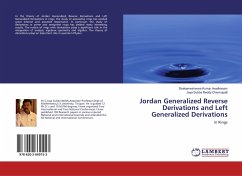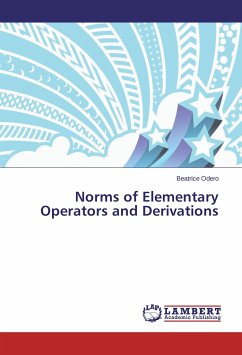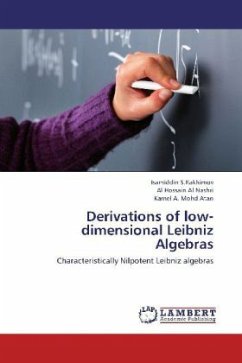
Derivations of low-dimensional Leibniz Algebras
Characteristically Nilpotent Leibniz algebras
Versandkostenfrei!
Versandfertig in 6-10 Tagen
45,99 €
inkl. MwSt.

PAYBACK Punkte
23 °P sammeln!
A derivation is a function on an algebra which generalizes certain features of the derivative operator. Specifically, given an algebra A over a ring or field K, an K-derivation is an K-linear map D from A to itself that satisfies Leibniz's law: D(ab)=(Da)b+a(Db). More generally, an K-linear map D of A into an A-module M, satisfying the Leibniz law is also called a derivation. The collection of all K-derivation of A to itself is denoted by Der(A). The collection of K-derivations of A into an A-module M is denoted by Der(A,M). Derivations occur in many different contexts in diverse areas of math...
A derivation is a function on an algebra which generalizes certain features of the derivative operator. Specifically, given an algebra A over a ring or field K, an K-derivation is an K-linear map D from A to itself that satisfies Leibniz's law: D(ab)=(Da)b+a(Db). More generally, an K-linear map D of A into an A-module M, satisfying the Leibniz law is also called a derivation. The collection of all K-derivation of A to itself is denoted by Der(A). The collection of K-derivations of A into an A-module M is denoted by Der(A,M). Derivations occur in many different contexts in diverse areas of mathematics. If the algebra A is noncommutative, then the commutator with respect to an element of the algebra A defines a linear endomorphism of A to itself, which is a derivation over K. Furthermore, the K-module Der(A) forms a Lie algebra with respect to Lie bracket defined by the commutator: [D1,D2]=D1 D2 - D2 D1. In this book we deal with the derivations of Leibniz algebras. The Leibniz algebra is a generalization of Lie algebra, so it makes sense to study the problems related to Lie algebras for the class of Leibniz algebras.



